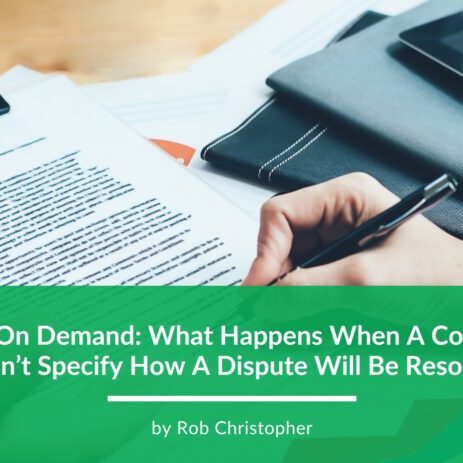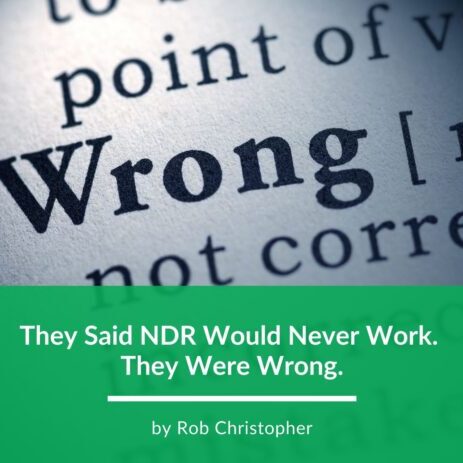Legal Innovation Trends: Are Law Firms Missing the Boat?

This fourth and final installment in the series of articles on innovation in the legal field covers what innovations are happening. The prior articles focused on why law firms aren’t innovating and what in-house counsel can do to inspire innovation. In reading these other articles, you might walk away with the thought that law firms are missing the “legal innovation” boat. But are they? In looking at what is happening in the legal industry, it seems that law firms are doing a few things to change, but that the bulk of change is happening with other companies and service providers. Let’s see what’s out there…
Flat fees (or “as quoted”) – Yes, these are clients’ often-requested-but-seldom-implemented alternative fee arrangements. We’ve moved from lump sum billing in the 1960’s for “Services Rendered” to hourly billing which is great to see where the hours are spent, but this did nothing to address the ultimate misalignment and disincentive to do work for reasonable fees. For flat fee arrangements to be successful, the work must be bounded and the fees must cover the work done and allow for some amount of profit. Additionally, it is important to balance who carries the risk of the alternative fee not working as needed. If the risk of a flat fee covering the work is all on the law firm (or other service provider), they will resist entering into the arrangement. But, if the arrangement includes a success fee for meeting particular milestones, it is more likely to deliver a win-win result for both parties. For a little more information on flat fee billing arrangements, take a look at this article: Walk the Walk: Paying More Than Lip Service to Client Service. For good, practical information on these types of fee arrangements, see the Handbook for Value-based Billing Engagements. In addition, check out the ACC white paper on Value-Based Fees, which is a good primer on various types of flat fee arrangements.
Right sizing – Right-sizing the work means matching the person doing the work to the skill level required for the work. For more routine work, paralegals and new associates can be trained to handle these items with minimal supervision. Doing so can control the costs of this work for companies. I have seen this happen with trademark work, immigration work, export controls and other compliance work. While right-sizing may not seem like an innovation, not everyone promotes and delivers it, so those providing this option look more innovative.
Law Firms – New law firms are being formed each day. Some are being formed to combat the culture and size of large law firms (which continue to consolidate at a rapid rate). One of the first law firms to do things differently was GCA Law Partners LLP (formerly General Counsel Associates) who has been around since 1988. They pioneered a new type of law firm that was partners-only with no associates or secretaries. Another more recent change is Fenwick & West’s FLEX which was started in 2010 to serve (and keep until they could afford Fenwick’s regular legal fees) its start-up clients with secondment and in-house, part-time general counsel legal services. The Valorem Law Group formed in 2008 to change how litigation was done. Valorem only focuses on litigation, charged on an alternative fee basis, rather than on a billable hour basis. These “new” law firms formed to control their hours, how the work is done, and who the work is for, and they focused on changing the fee arrangement model for their clients.
Legal Operations – With the meteoric rise of groups like the Corporate Legal Operations Consortium (CLOC), it’s not hard to see why the addition of Legal Operations staff in in-house legal departments or even in law firms is growing like wildfire. People like Connie Brenton, Chief of Staff/Director of Legal Operations at NetApp, are leading the charge to bring legal operations in-house. Legal departments are installing operations position/chief of staff to separate the work of operating a legal department from the legal work itself. Adding a legal operations person to handle budgeting, personnel, training, and 10 other things (more on that below), rather than trying to have the General Counsel do it all, just makes good business sense. Often, what makes a lawyer great as a lawyer doesn’t translate to the business management experience and skills necessary to run a department well. Also, I don’t see any real agreement yet on what legal operations consists of – it changes from company to company and person to person. I went to a meeting at DLA Piper recently where we had a long discussion about what legal operations meant and everyone in the room had a different opinion. It was almost like asking 10 CPAs for tax advice and getting 11 different answers. The 10 roles we started the discussion with, at the speaker’s suggestion, were: financial management, vendor management, outside counsel management, human resources, department management, compliance, knowledge management, litigation support, project management, and freeing attorney time. A few other roles mentioned were policy management, technology management, and automation. What a legal operations person can do in your legal department can range from controlling legal bills through e-Billing or consolidating outside counsel firms to automating how NDAs or Independent Contractor Agreements or Sales Agreements are done in your company. There is almost no end to what the operations role can take on.
Legal Operations Outsourcing – if a company doesn’t have the resources to hire a legal operations person, there are new legal operations companies popping up everywhere. One of the most recent ones is UpLevel Ops, who concentrates on making operations an integral part of a legal department, giving them the tools to innovate — from online billing system to analytics of services. This can be a good choice for legal departments who do not have the head count to solve the legal operations problem but do have budget to spend on a service provider. There are also many, many service providers concentrating on a particular aspect of legal operations, like compliance or litigation support, or more to the point, eDiscovery (i.e. LogikCull or Everlaw).
New Model Legal Service Providers – In recent years, there has been a spate of new legal service providers who are providing legal services in ways that differ from traditional business models. The essential services are the same, but the delivery is different. These new providers include companies like Legal Zoom, Legal Shield, and Trademarkia. For example, Legal Zoom will walk you through the process and paperwork to incorporate your new business and then provide follow-on legal services at a discount or on a subscription basis depending on your legal needs, with some of the services referred to designated law firms (usually smaller, regional firms).
Innovative Non-Legal Services – these new providers of innovative, substitutive services are doing things very differently – the particular service each provides is vastly different from that of a traditional law firm or other legal services provider and effectively replaces some costly and inefficient part of what legal services providers do. A few examples of these types of new companies and services are FairClaims, OneDayDecisions, YurJury, and Just Resolve. FairClaims, who just received a first round of funding to the tune of $1.8M, provides an online small claims resolution platform to quickly decide disputes for fixed fees. One Day Decisions provides an online mediation service via email to negotiate a settlement for a fixed fee of $19. YurJury provides an online platform to quickly and inexpensively present a case to a jury-like focus group who can decide facts or cases, or advise what would happen if the case were sent to a jury. Just Resolve delivers non-adversarial dispute resolutions for fixed fees. Its neutral-driven method differs from mediation, arbitration and court in that it does not have dueling lawyers controlling dispute investigation and later presenting to a reactive neutral judge or facilitator. Instead, neutral “arbiters” – who are mutually chosen by the parties – conduct the necessary investigations, facilitate any negotiations, and ultimately decide the disputes if necessary. This approach is especially useful in many common disputes where legal fees otherwise tend to consume what is at stake. All of these providers have one thing in common – to provide access to justice at an affordable cost.
The driving theme of all these innovations seems to be that legal fees and costs are too high or that reaching a resolution takes too long. Whether it is a law firm, other legal service provider or substitute services consolidator, these companies are making a difference in both our outcomes and our legal spend.
More to read
NDR on Demand: What Happens When a Contract Doesn’t Specify How a Dispute Will Be Resolved?
The best way to deter threats of litigation and minimize the costs, duration, and distractions of resolving any dispute is to put a dispute resolution clause specifying NDR — Neutral-Driven Resolution — in all your contracts BEFORE there is a problem. That means that if a dispute should arise between a business and a contractor,…
They Said NDR Would Never Work. They Were Wrong.
Many people are surprised by how effective NDR can be. Since publishing my book and speaking at events about NDR (Neutral-Driven Resolution), I’ve often been asked a simple question: Does it work? And if it really does lower the costs and the time it takes to settle common disputes, why doesn’t everybody know about…
“Morgan Hill author releases new book”
The Morgan Hill Times featured Rob’s new book in an article ahead of his “Meet the Author” night at Booksmart. “Legal disputes and conflicts cost businesses billions of dollars a year in lawyers’ fees, lost productivity, time and aggravation. A new book by Morgan Hill author Robert Christopher proposes an innovative, faster and simpler way…
Not All Disputes are Equal
Not all business and legal disputes are alike, and not all of them can be resolved in the same way. In writing my book Just Right: How Neutral-Driven Resolution Can Close the Gap in American Civil Justice, it was important to distinguish the types of common disputes for which NDR is most suitable. As readers…



